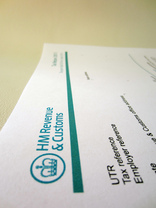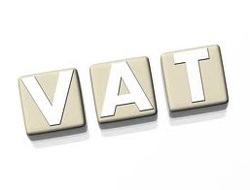|
New Governmental financial support for small business
100% government backed loan scheme for small business- Bounce Back Loans scheme The scheme will launch for applications on Monday 4 May. Firms will be able to access these loans through a network of accredited lenders. Outcome: To help bolster the existing package of support available to the smallest businesses affected by the coronavirus pandemic. Small businesses will benefit from a new fast-track finance scheme providing loans with a 100% government-backed guarantee for lenders Characteristics: Businesses will be able to borrow between £2,000 and £50,000 and access the cash within days Loans will be interest free for the first 12 months Businesses can apply online through a short and simple form. Provide loans of up to £50,000. Will provide lenders with a 100% guarantee for the loan Pay any fees and interest for the first 12 months. No repayments will be due during the first 12 months. The programs come in addition to business grants, tax deferrals, and the job retention scheme, which are already helping small businesses.
20 Comments
Tax return deadlines are 31 October for paper returns and 31 January for electronic returns following the end of the tax year to 5th April.  Pensions At first sight the Chancellor’s Autumn Statement did not contain much cheer, but things are not as bad as you might think. The restriction in pension tax relief caught the headlines, but has not yet been implemented. Although the pension annual allowance will fall to £40,000 as of 6th April 2014, there is still scope to use unused relief from previous years. Other non-contentious tax breaks are also still available for those who want to look for them. With just over three months to go to the end of the tax year, it’s time for people with income of more than £100,000, especially those paying the top tax rate of 50%, to consider how to reduce their tax liabilities. Accountants, Brighton, Hove, accountant  The deadline for posting 2011/12 paper tax returns to HMRC before the 31 October deadline, is now just days away. Any paper tax returns received on, or after 1 November 2012, will result in a £100 penalty – even if there is no tax to pay or the tax due is paid on time. Anyone unable to submit a paper return by the end of the month, can avoid a late-filing penalty by sending their return online by 31 January. And for anyone sending a paper return close to the deadline, HMRC recommends taxpayers obtain proof of posting, as this provides evidence of your posting date in the event of any appeal against a late-filing penalty. If you are in doubt get in touch with us for helpful advice.  Choosing an accountant can be a daunting task which is why we have set out below some guidance to help you make the right decision for your business whether its a simple tax return or a prospering limited company/LLP Should I pick the cheapest? Unfortunately a number of accountants choose to compete on price rather than service, you want an accountant that will help your business grow not just compliance, see what services are being offered and always get fees agreed in advance. We are not the cheapest as we offer a 5* service to our clients however our fees are competitive. Will the most expensive accountant provide the best service? This is not the case in our experience, the larger firms tend to charge more than the smaller firms but the work is actually delegated to a junior member of staff, therefore you may find yourself paying a premium for a service which is not the best. Smaller firms (such as ourselves) offer a much more personal contact with a dedicated accountant which you can contact immediately who knows your business intimiately, all for a competitive fee, which can be paid monthly (in our case anway) Do I need a local accountant? Its helpful for meetings but not essential, the specialist service they provide is far more important, we look after clients in the surrounding area i.e Brighton, Hove, Portslade, Eastbourne, Shoreham etc however technology has enabled us to also look after clients all over the UK by liasing via telephone/email & skype etc What else should I consider?
Once you have found your accountant treat him/her with courtesy i.e don't ignore them or send them your figures at the last minute and also make sure their fees are paid on time, this will ensure a mutually beneficial working relationship If you would like us to provide a no obligation quotation or free consultation please don't hesitate to get in touch using the contact us link.  _ A scheme which encouraged higher rate taxpayers to sort out their accounting at a reduced cost is set to end early next month. HM Revenue & Customs (HMRC) sent out more than 7,000 letters offering people who are yet to file their accounts or pay tax for 2009-10 the option of lower costs if they sorted out their affairs ASAP. They have until October 2 to respond, after which fines and charges will revert back to their normal levels. The tax authority has not confirmed what those who do come forward before the deadline will be charged but it has said that it will be significantly lower than the costs taxpayers will be hit by if HMRC has to track to them down. Marian Wilson, head of HMRC campaigns, said: “This campaign offers you a quick and straightforward way to bring your tax affairs up to date, but time is running out - you have until 2 October to submit your tax returns and pay the tax you owe.” If you need help with getting your tax affairs up to date or need an accountant in Brighton get in touch with us to see if we can help  Clients often ask about dividends issued to the owner of a limited company and what rate of tax such dividends attract. This article has been written to illustrate the tax implications of paying yourself dividends from your limited company without going into too much detail the postion is as follows Let’s take the example of a company director paying himself a dividend from his limited company of £18,000 and this is the only income he has earned during the tax year. The dividend issued by the Limited Company will be £18,000 and this will be the total sum received by the company director. However, the dividend certificate will state £18,000 dividend plus £2,000 dividend tax credit, giving total dividend income of £20,000. Here the dividend tax credit is simply a notional value and is not paid to the company director and will not be paid to HMRC. The company director will not pay income tax on the dividend he has received above of £18,000 and the amount that should be stated on his Self-Assessment Tax Return is £20,000. In effect the 10% tax credit cancels out the tax due on the dividend at 10%. In essence, if you are a basic rate tax payer (income up to £34,370 for the tax year 2012/13) then you will not pay any tax on dividends you issue to yourself from your limited company. If you are a higher rate tax payer then income tax will be due on the gross amount exceeding £34,370. (assuming a directors salary below or equal to the tax free allowance)  Whatever your business sector you must prepare annual accounts which report on business performance and activities during the financial year. What you may be unaware of, is that businesses are allowed a free choice of when to end an accounting year. So, for 2012/13 tax, accounting dates can vary between 6 April 2012 and 5 April 2013. The date that you choose may be dictated by commercial reasons, but also by external factors such as interest rate movements, inflation, changes in rates of tax and changes to the tax system. Generally speaking, using a date towards the end of the tax year leads to the simplest application of a current year basis of assessment, although this leaves very little time before tax is payable. Alternatively, businesses expecting an upward trend in profits may benefit from cashflow advantages if their accounting date is set on or shortly after the beginning of the tax year, although this also has its disadvantages including increased liability should the business cease less any applicable overlap relief. Do you need us to review your accounting date?  HMRC have rules regarding what constitues proof of expenditure including VAT that you can reclaim. The proof required for purchases over £250 are more strict than those for purchases under £250. For purchases above £250 the VAT invoice must show:
 When RTI comes into force in October 2013, employers will be required to send HMRC payroll payment information that includes information on the amounts paid and the number of hours. The submissions are made when the payroll is processed, which will have to be weekly or monthly to allow the Department of Works and Pension to use the information to calculate Universal Credits payments. The monthly reporting to HMRC will be a problem for small companies which pay a small salary below or equal to the personal allowance (£8105) as there is a requirement to log hours worked, which could breach national minimum wage rules Before RTI it was possible to declare a low salary as an annual payment, however under RTI if a monthly salary is taken this will need to be reported monthly even if there is no tax payable. This scheme is going to be an administrative burden on accountants and owner businesses, the scheme is already being piloted and planned to be online by 6th October 2013 HMRC have prepared a webinar on RTI which can be found at http://www.hmrc.gov.uk/webinars/pre-recorded.htm |
AuthorLicenced Accountant in Brighton Archives
May 2020
Categories
All
|

 RSS Feed
RSS Feed
